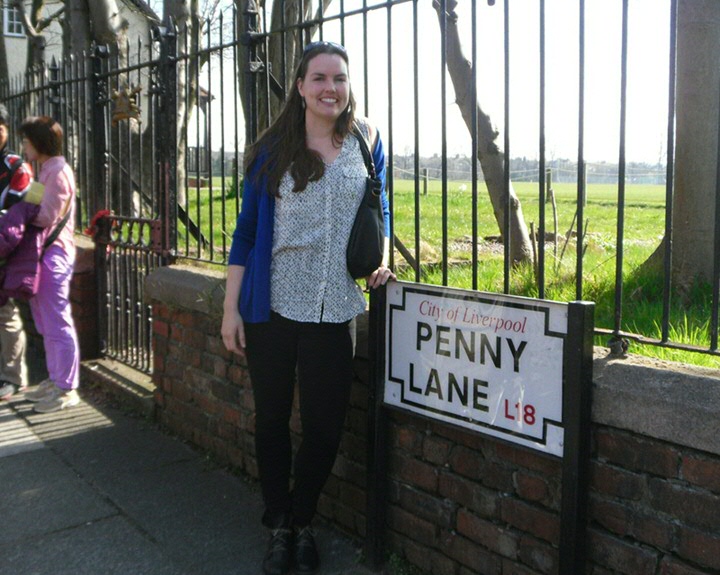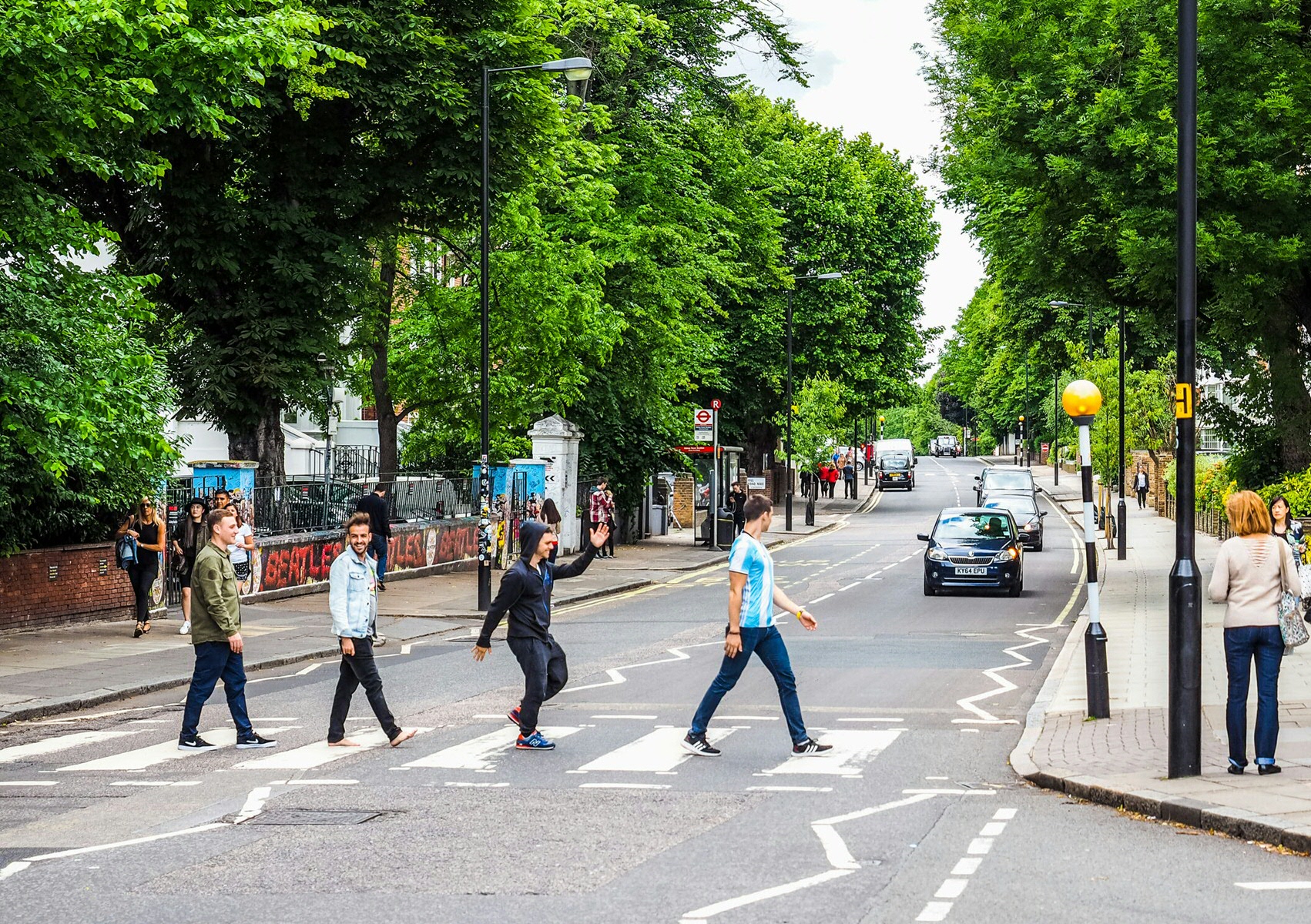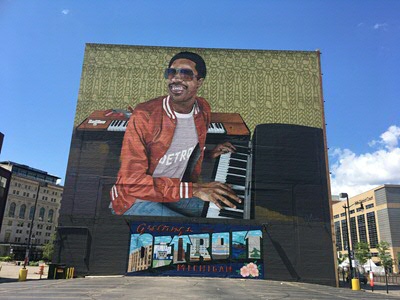Music tourism: from Abbey Road to Zoutelande
Abbey Road, Graceland, Père-Lachaise... these are all places that immediately bring to mind music or musicians. When music inspires places and feelings to fondly embrace and initiate an intimate dance, this is where music tourism emerges – a growing industry that, for example, allowed the song ‘Zoutelande’ by Bløf to become not just a hit, but also a commercial ad for the province of Zeeland.
Cultural geographer Leonieke Bolderman is studying how music tickles the imagination, thereby giving a place an identity and feeling – and vice versa, how visiting a place can enrich the way people experience music. Music tourism is thus a growing industry with economic value as well as importance to the personal lives of people. Music tourism can be a way to interpret and give meaning to the complex world we live in and to help us people feel literally and figuratively more at home.

Why are people interested in visiting places that they know through music?
‘People who travel to specific locations connected to music, such as the place where a musician was born, lived, or died, or a place that is described in a song, usually do this because the music means something special to them. Sociologist Tia DeNora (University of Exeter) has demonstrated beautifully how music can tell the story of who you are. People who love music tend to link certain key moments in their lives to specific music. Think, for example, of the song that you danced to at your wedding, in my own case “Sunny” by Bobby Hebb, or a song that you often listened to when your parents got divorced or when you were lovesick. In this way, music can become a decisive factor in the story of who you are, in other words in your identity. In my research, I see a lot of people who feel the need to visit the places that they link to the music that is important to them.’
How can music tourism play a role in cities or regions? Could you give some examples?
‘One of the most obvious successful examples of music tourism is The Beatles’ Liverpool. In the 1980s, the city centre of Liverpool was dilapidated and unsafe, not a good place to be, and certainly not a nice place for tourists to visit. Private initiatives have inspired a lively industry surrounding the musical heritage of The Beatles, which at a later stage was adopted and strengthened by the municipality of Liverpool. This was so successful that Liverpool is now known as the city of The Beatles, with museums, tours, concerts, an attractive and lively city centre, and events such as the Eurovision Song Contest next year. Liverpool is now a major tourist attraction; a perfect destination for a city trip. Music and musical heritage clearly play a central role in the appeal of the city, and in the current economic success of Liverpool. Another example is New Orleans, where music played an important role in the city’s reconstruction after hurricane Katrina in 2005. The French Quarter was restored relatively quickly after Katrina, because the dollars generated by music tourism were desperately needed to rebuild the city.’

Is music tourism a recent phenomenon or has it always existed?
‘That depends somewhat on how you define music tourism. Journeys in which music plays a role have been around for centuries – think, for example, of travelling troubadours, or even older, religious festivals that incorporated music. Tourism emerged when a distinction started to be made between paid work and leisure time. The most considerable growth can be seen in the 1950s and 1960s, when tourism became available to the masses as a result of increasing prosperity and commercial aviation. Music tourism as I describe it in my research started to appear as tourism diversified further. From around the 1990s, people began to lose interest in standard trips as they had more time and money for other types of vacations, such as winter sports holidays, city trips or family vacations – as well as, nowadays, musical trips, for example going to a concert of your favourite band in a nice warm country or in a fun city abroad that you have always wanted to visit.’
How can the economic value of music tourism be interpreted?
‘It is estimated, for example, that the contribution made by music tourism to the economy of the United Kingdom runs in the billions. However, the question is always what is or is not included in such figures: which expenses are tourist expenses, and how directly should these expenses and revenues be linked to music? For example, does a festival fall under music tourism, and if so, do you only count the profits of the festival itself or also the jobs it creates and its spill-over effects on the local and regional economy? And how can the regional identity building that such a festival inspires be captured in economic value? In other words, interpreting economic value is rather complicated.’

When does music lead to tourism? What does it take?
‘My first book discusses the question how music can generate tourism in the first place. After all, music is essentially invisible, whereas tourism is all about sightseeing. My research distinguishes four ways to link music to a specific location: via musical instruments or characteristic rhythms/sounds, via text or images, via the maker (or the maker’s biography), and, finally, via the places where music is made, sold, or performed (such as record shops, recording studios, or concert halls). Music has a strong ability to shape a local identity. This makes it a suitable tool to promote places, thereby creating “music cities”: cities that are known for and advertise themselves with their local music culture.’
Can any city become a ‘music city’?
‘This is one of the main questions I am working on right now: is this indeed possible, or does it dilute the attraction of the concept of “music city”? Do you need, for example, a minimum of musical heritage or existing music industry in order to be credible as a music city? In my current research, I am looking at the city of Detroit, where I lived for three years. It is a city with a very rich music history – with Motown of course, but also artists such as Madonna and Eminem, and the music genre techno. Based on this, you would expect it to be a very successful music tourism destination. However, this is not really the case. So what is going on here? First of all, Detroit also symbolizes the bankruptcy of big American cities. There is simply not a lot of money for music marketing and the promotion of music history. One of the consequences of this is that it took very long for the Motown museum to be expanded. In addition, government bodies in the United States traditionally do not play a very active role in these matters. And a musical genre such as techno does not appeal to everyone. Moreover, ethnicity and prejudice play a major role in everything in Detroit, for example in relation to techno and Motown. In short, many factors can play a role, and there is no simple formula to it. You don’t become a popular “music city” just like that!’
More information
More news
-
01 December 2025
The power of movement
